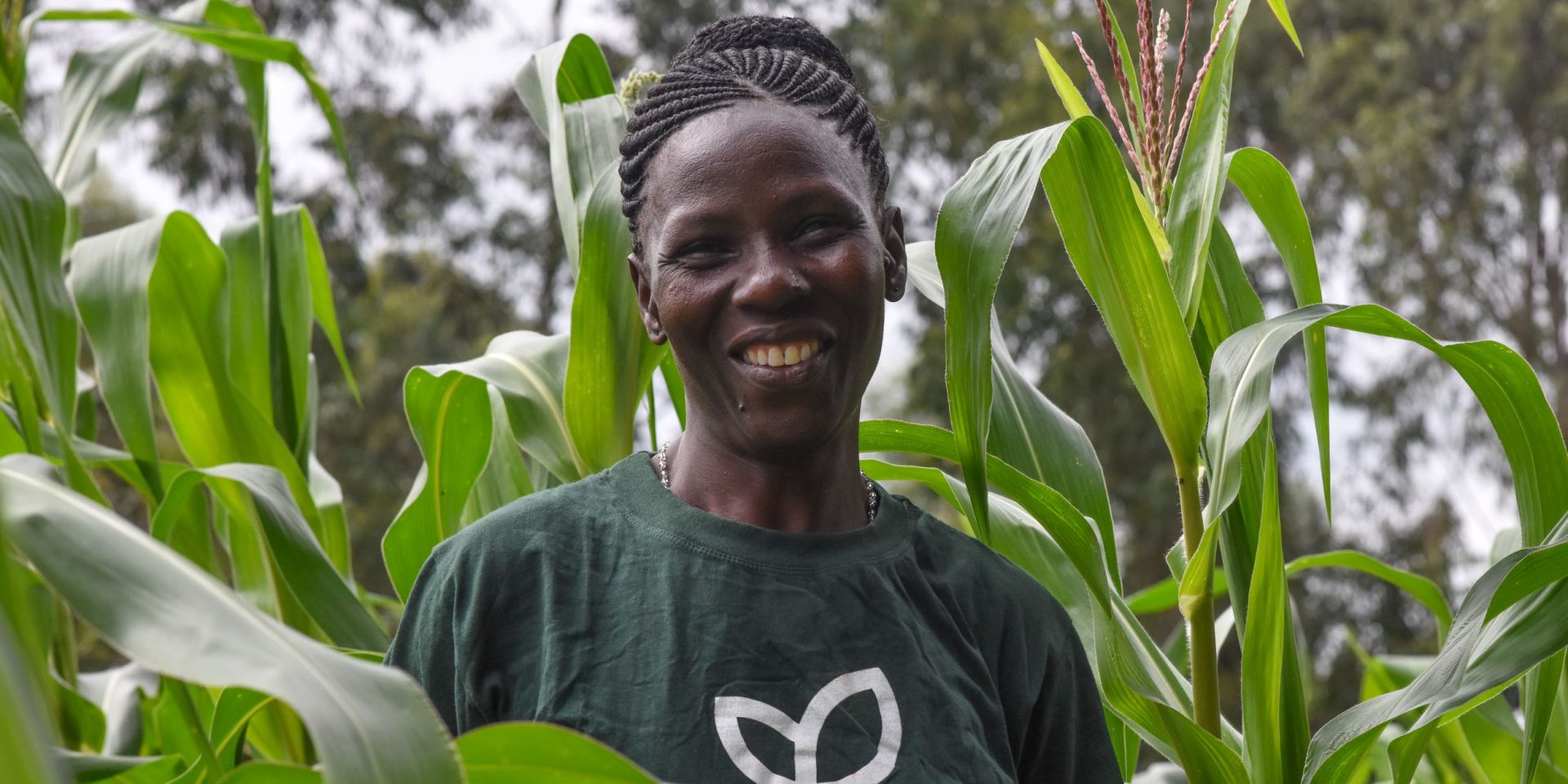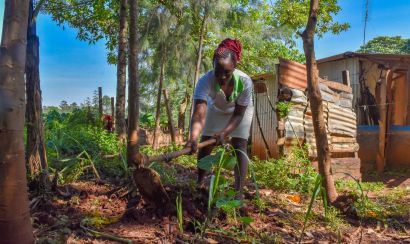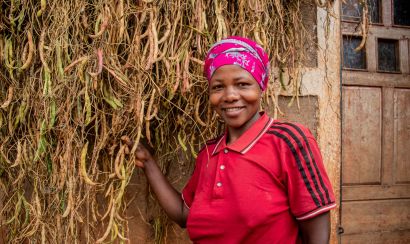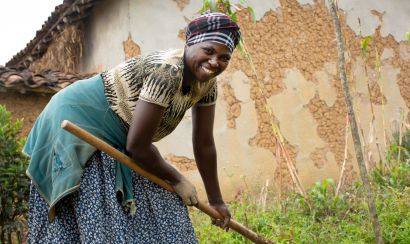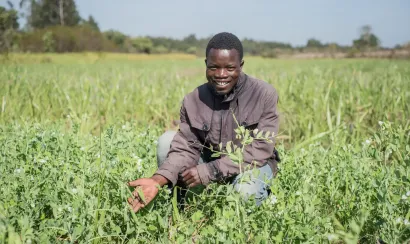Why investing in women farmers catalyzes community development
Hilder Ongeri is a busy woman. On most days, you will find her tending to her farm deep in Kenya’s Kakamega County. When not immersed in agricultural activities on her farm, she’s helping her children study or leading farmer meetings with One Acre Fund on improving farming productivity.
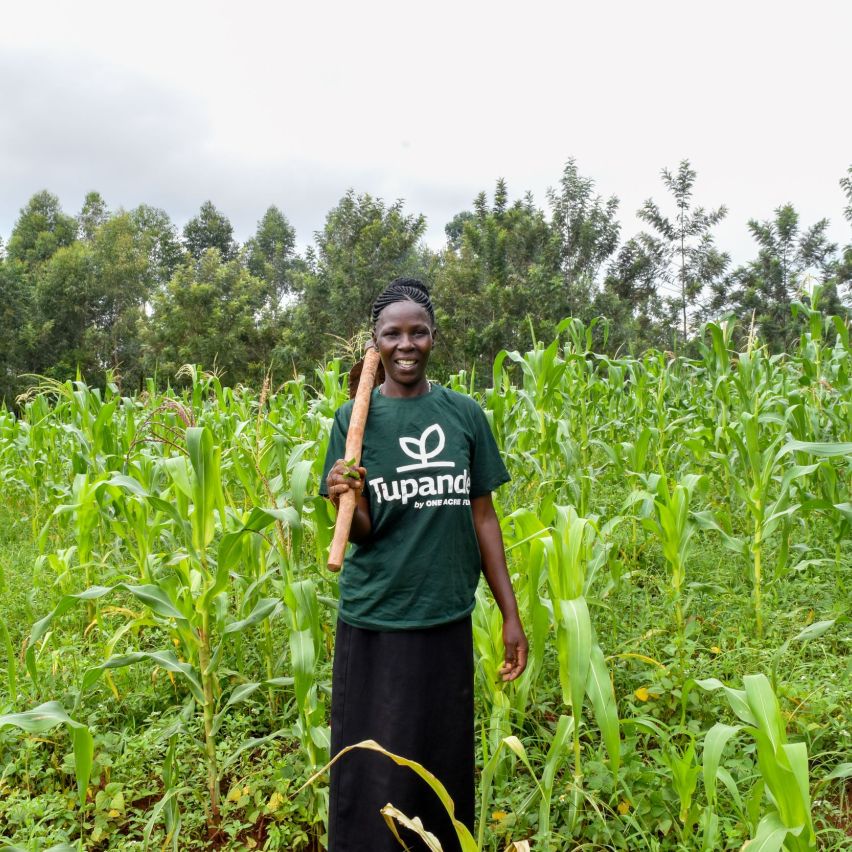
“Farming is my source of livelihood, and I am very passionate about it. I enjoy being a farmer group leader as it gives me a sense of purpose in my community. It enables me to interact with various people, for whom my work is an inspiration."
Group leaders work closely with our Field Officers to mobilize members, ensure that farmers are following the trainings they receive on things like planting and fertilizer application, and support repayment efforts.
Overcoming barriers to success
The role of women is changing across Sub-Saharan African, but one thing that remains unchanged is how important they are to their families and communities. At the same time, barriers remain that impede women’s efforts to participate in gainful personal and communal development.
These barriers are especially prevalent in agriculture, which is perhaps the most important sector in rural development -- generating approximately between 40 and 60 percent of total rural income (source: FAO). Of these barriers, one of the biggest is access to asset-based finance.
At One Acre Fund, we provide farmers with access to the quality seeds, fertilizers, and training they need to improve their livelihoods on credit. Sixty percent of the more than 4 million farmers accessing our services across nine countries in Sub-Saharan Africa are women, and this access to financing plays an essential role in resolving upfront financial barriers that they often face.
"With One Acre Fund’s loan, I can concentrate fully on farming, aiming for the best possible harvest." Hilder explains.
"Before joining the program, I would plant two 2kg bags of maize seed on an eighth of an acre and harvest less than 1 sack. Since enrolling with One Acre Fund, I harvest up to 30 sacks of maize on an acre of land. I have enough for my family to eat, and a large surplus. With my first harvest, I sold the surplus and bought my cow, which I named One Acre Fund, and this number has since grown to 4.” Hilder shares.
Intergenerational and community impact
Women typically invest more of what they earn back into those families and community (source: UN, WFP). So empowering women to lead agricultural projects and activities has a real ripple-effect.
For their families, this investment helps them improve nutrition, access better education, and generally improve their livelihoods. This then has knock-on effects for the generations that follow.
“From my farming income, I have invested in my children’s future by educating them. My daughter is a trained special needs teacher, my second-born son is a certified mason, and my last-born son just completed high school. I hope to send him to a technical institute to study an agriculture-related course,” Hilder says.
And when women have a voice in decision-making, communities benefit from their knowledge, resilience, and innovative solutions. Hilder stands out as an example here: as a leader of 23 other smallholder farmers from her local community, she is always open to share with farmers how her harvest improved, enabling the farmers to leverage her experience to produce and earn more.
Investing in women farmers is not just smart because women make up the majority of Africa’s smallholder producers; it is also the right decision if we want to accelerate rural development. Women remain the cornerstone of their families and communities. Investing in them to excel as entrepreneurs is to invest in entire communities.
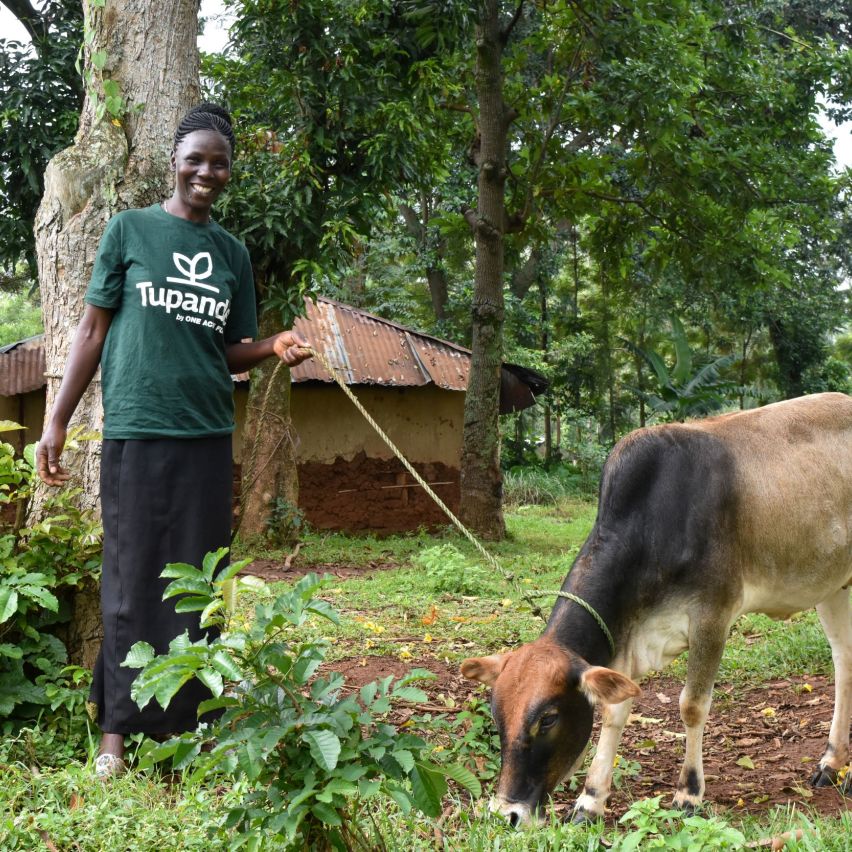
"I enjoy guiding my neighbors through the benefits of One Acre Fund’s asset-based financing. Being able to extend assistance to my community as a group leader makes me happy."
